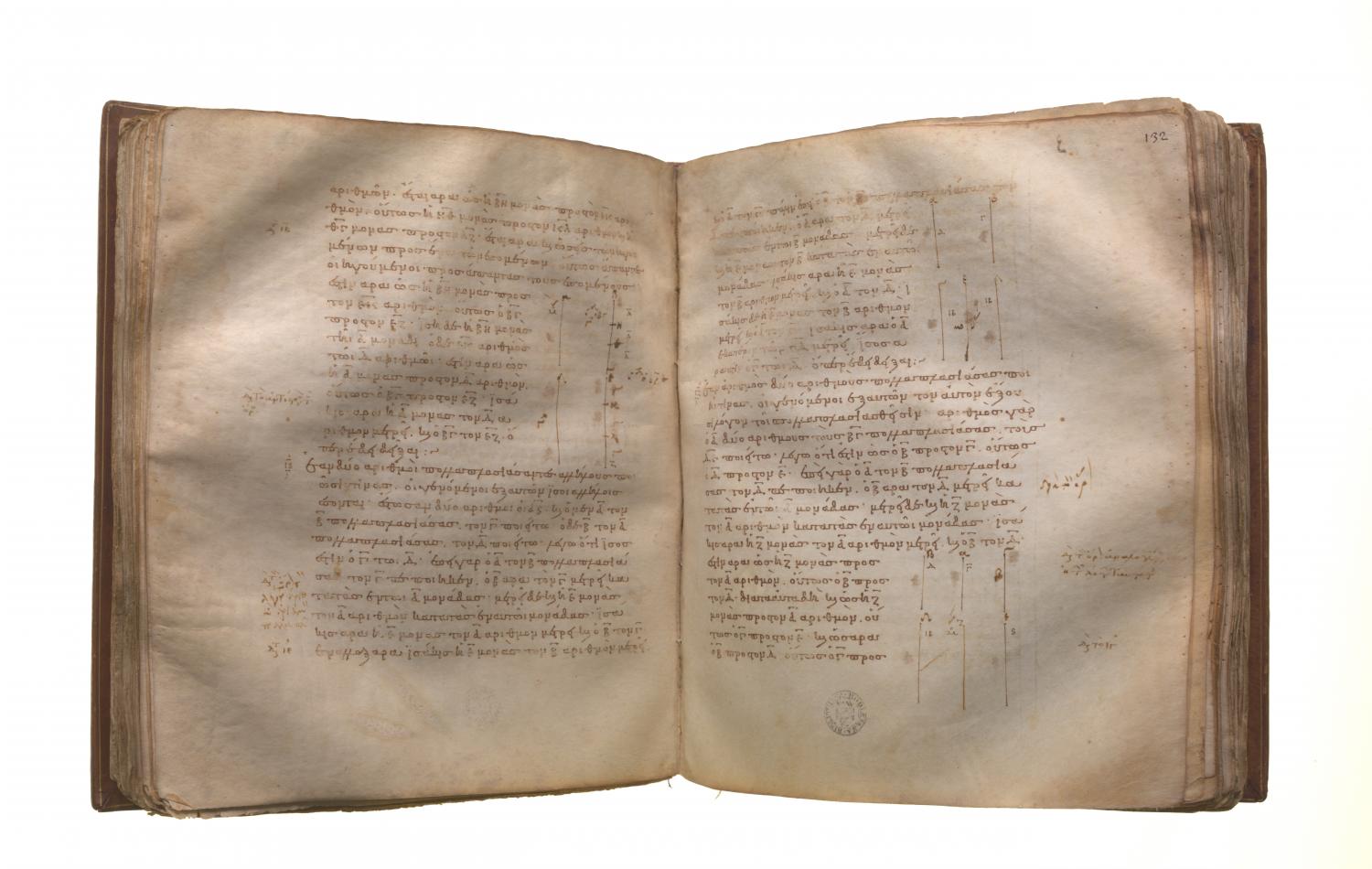Translations
If two numbers by multiplying one another make certain numbers, the numbers so produced will be equal to one another. Let A, B be two numbers, and let A by multiplying B make C, and B by multiplying A make D; I say that C is equal to D. For, since A by multiplying B has made C, therefore B measures C according to the units in A. But the unit E also measures the number A according to the units in it; therefore the unit E measures A the same number of times that B measures C. Therefore, alternately, the unit E measures the number B the same number of times that A measures C. [VII. 15] Again, since B by multiplying A has made D, therefore A measures D according to the units in B. But the unit E also measures B according to the units in it; therefore the unit E measures the number B the same number of times that A measures D. But the unit E measured the number B the same number of times that A measures C; therefore A measures each of the numbers C, D the same number of times.
